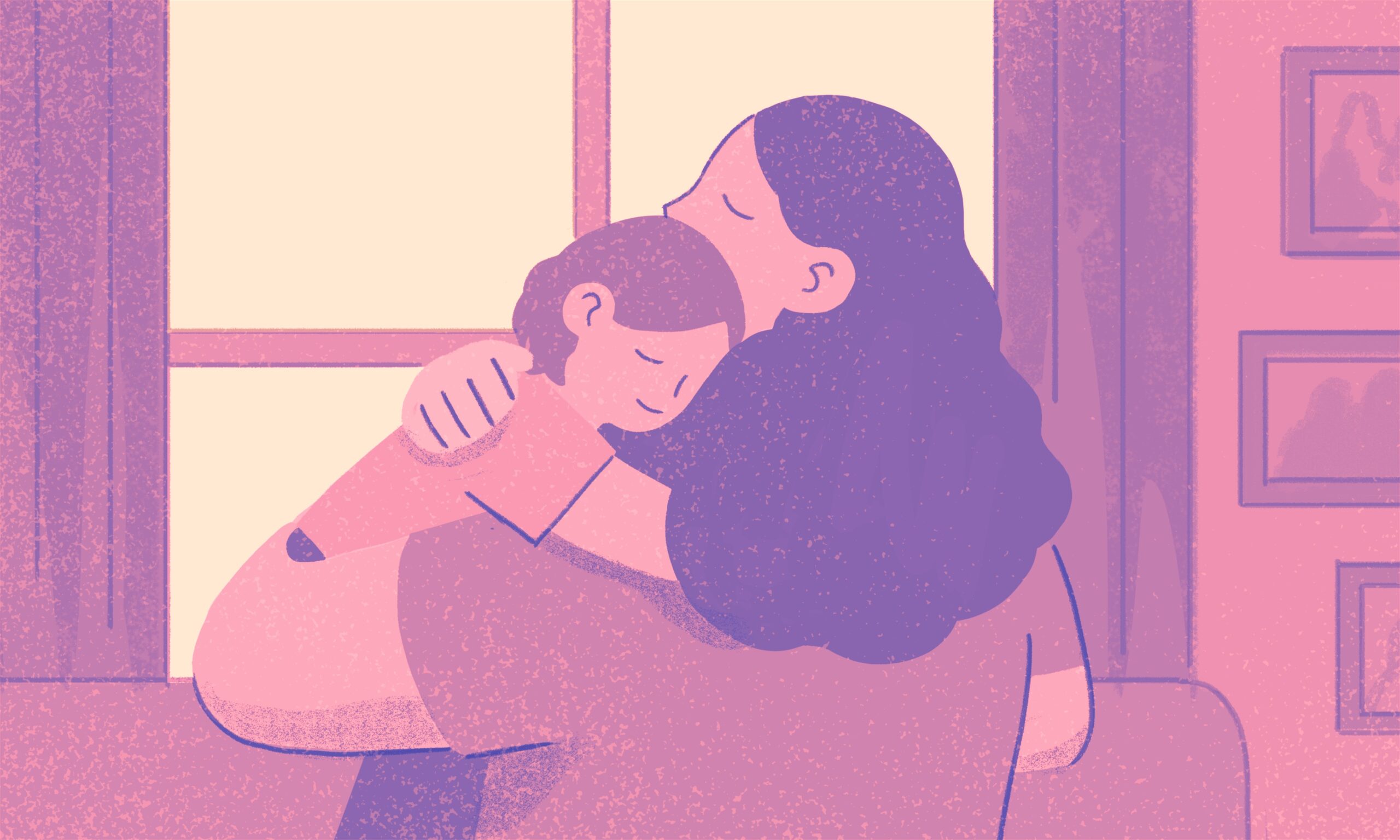
EMILY WHANG / NEXTGENRADIO
What is the meaning of
home?
Jill Shih speaks with Araceli Del Rio about how she turned her childhood home into a safe haven for her 7-year-old autistic son Lionel, who has a tendency to wander away from home. Del Rio lives with a determination to educate her community about the challenges that caregivers of children with disabilities face on a daily basis.
How a Mother Is Keeping Her Autistic Son Safe at Home
Listen to the Story
Click here for audio transcript
Araceli del Rio:
I was looking everywhere in my home. I was looking in the closet, under the table, into the rooms, the restrooms—every inch that his small body can possibly fit, and he wasn’t there.
And it’s just such an awful feeling to feel, knowing that your baby is supposed to be at home safe and he’s not.
My name is Araceli del Rio. I’m a mother of three. My youngest son has autism.
I live with my mother, my father and my younger sister. My family are my neighbors. My older sister lives next door. My uncle lives next door, and my friends from high school live down the street.
Living in my childhood home, it’s, it’s been great, but now that I have an autistic child, I have to let everybody know about him.
[DEL RIO: Hi. Come here. Oh my goodness.]
The first time Lionel ran outside, he was about 3 years old. I felt so scared. I felt like part of me did something wrong, and I went outside running, looking for him.
I went towards the street, which was my last resort because I didn’t think he would possibly get that far. I started to cry, and I started to think the worst.
And the second time around when he did that, when he ran out the door, I was putting away groceries, and all I remember is my nephew coming in with my son, and I was looking around so confused, and I immediately started to cry knowing that I didn’t even notice he was gone.
Him running out had a really big effect on me. I just wanted to basically baby-proof the whole house.
[Sounds of door opening]
I wanted to have noise when the door opened and closed.
[Sounds of door opening]
The spring is very loud actually, so I could hear when someone gets out, but that day I didn’t hear him get out, and normally every time someone comes in and out now I am very aware, I am. It’s like I memorized the door sound inside my head.
[DEL RIO: Are you all done? (sounds of Lionel’s voice)]
Right now he’s 7 years old, so he’s accomplished a lot.
[DEL RIO: Are you thirsty?]
He still tries to run away. We’re working on that thing.
[DEL RIO: I know. You’re upset. (sounds of Lionel’s voice)]
Home to me is a safe space where Lionel can come home, play with his toys. He is able to be as loud as he wants. He is able to jump.
[DEL RIO: I got you, I got you. It’s okay.]
He’s able to be himself without anybody looking at him or being judged.
So home to us, it’s everything.
Araceli Del Rio, 34, knows every inch of her three-bedroom, multi-generational home located in the northeast part of Monterey Park, Calif. She’s lived there since she was 16, and it’s also where she’s raising her three children ages 17, 13 and 7.
“I get to relive memories with them and share stories about our community,” she said. “Familiar faces get to see my children grow up.”
Del Rio’s immediate neighbors are her family and high school friends. Her older sister lives next door, as does her uncle. Del Rio credits her close-knit community for making her feel safe and less alone as she raises her youngest, Lionel, who also has a developmental disability.
“[I feel] a lot more comfort knowing that if he runs away, at least someone I know is there or can notify me that he has run out,” she said.
Lionel, 7, was diagnosed with autism spectrum disorder (ASD) when he was 3 years old. With the help of her doctor and agencies like the Eastern Los Angeles Regional Center, she was able to learn more about ASD. She said it took her about a year to receive an official diagnosis.
As part of his disability, Lionel has a history of wandering away, or eloping, from home. She said he has eloped more than five times in the last four years. Del Rio said each time it happened, she felt a sense of guilt.
“I know it’s not his fault, and it puts more weight on my shoulders because I start thinking about how I couldn’t do anything to prevent it,” she said. “It gets to me every single time.”
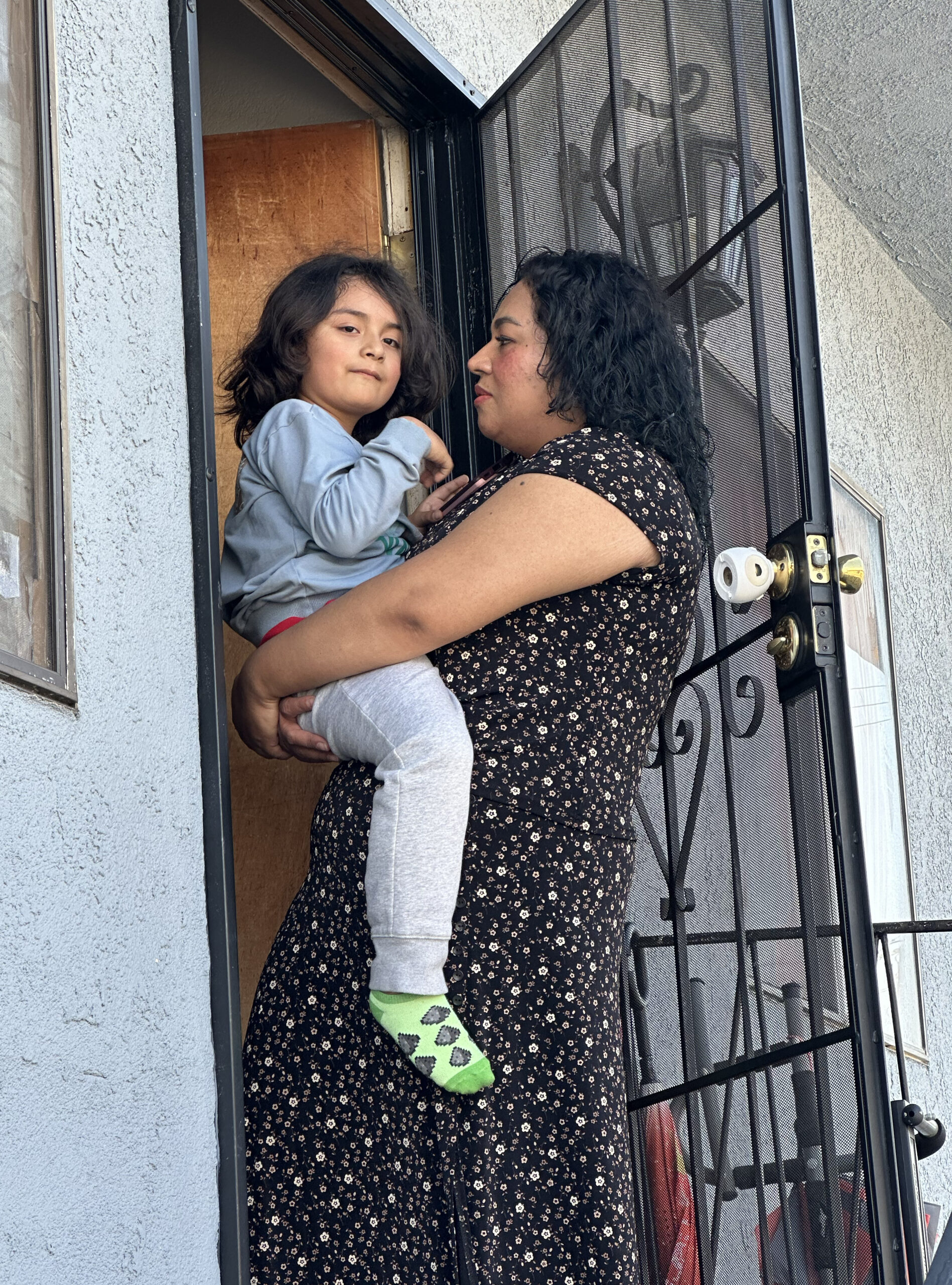
JILL SHIH / NEXTGENRADIO
According to a 2012 study published in the American Academy of Pediatrics Journal, 49% of children with ASD elope at least once after the age of 4, and of those who attempted to elope, 53% went missing long enough to cause concern. The study included reports of traffic injuries for 65% of the missing children and reports of close calls with drowning for 24% of the missing children.
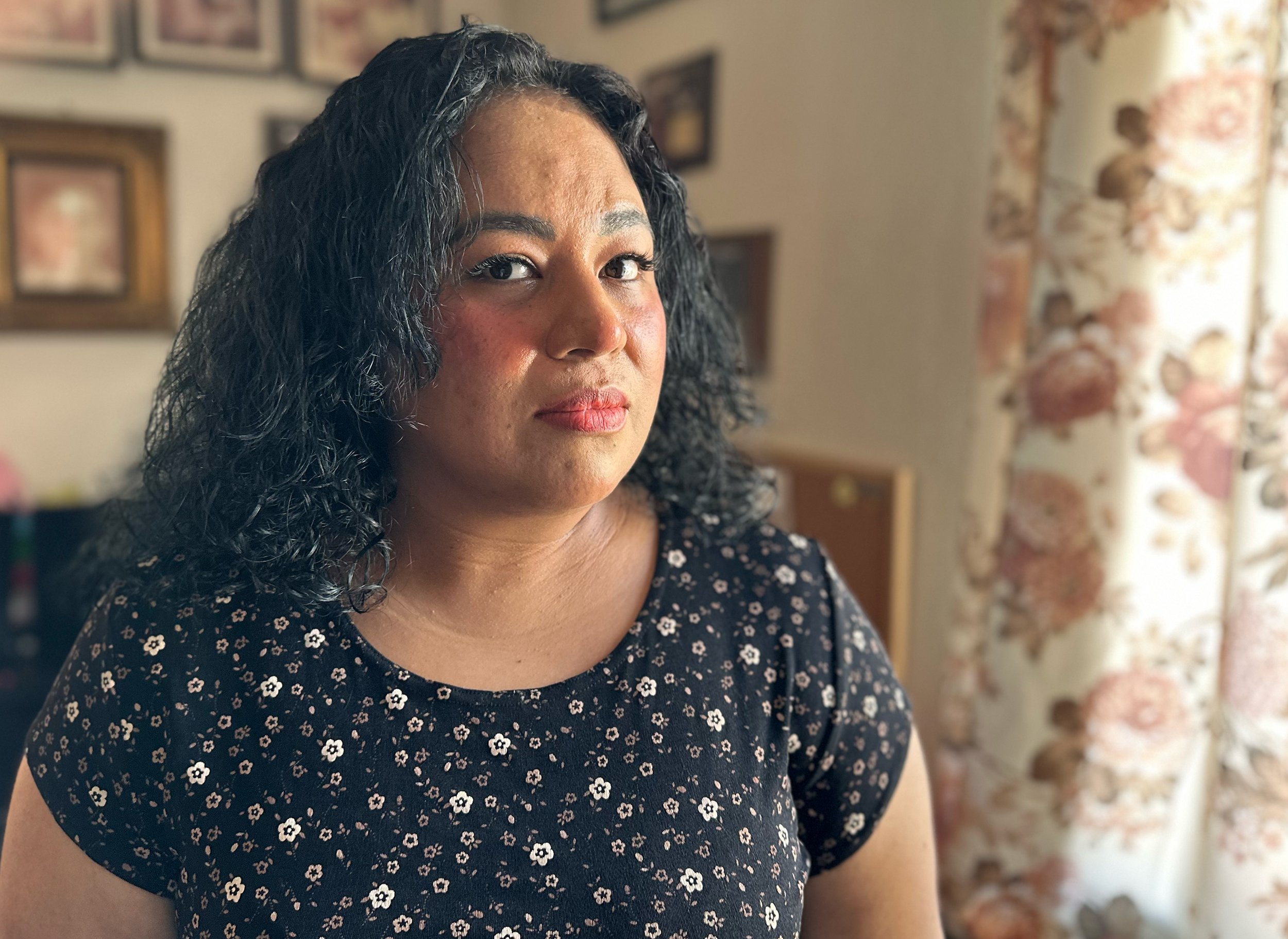
JILL SHIH / NEXTGENRADIO
The first time Lionel went missing he was 3 years old. Del Rio said he slipped out the front door, walked down the house’s front stairs and crossed the street.
In those moments he went missing, Del Rio said she feared the worst.
“I was looking everywhere,” she said. “I was looking in the closet, under the table, in the rooms and restrooms, every inch that his small body can possibly fit.”
Del Rio said a stranger found Lionel at Monterey Vista Elementary School, on the other side of the street from her home, and held his hand to prevent him from running off again.
“I was just so happy someone found him and he wasn’t missing,” she said.
To prevent Lionel from eloping, Del Rio made several modifications to her home. Every door in her home has an additional child lock on the door knob, and the doors often remain locked throughout the day. Del Rio also set up a camera in Lionel’s bedroom and makes sure the front door makes a noise when opened.
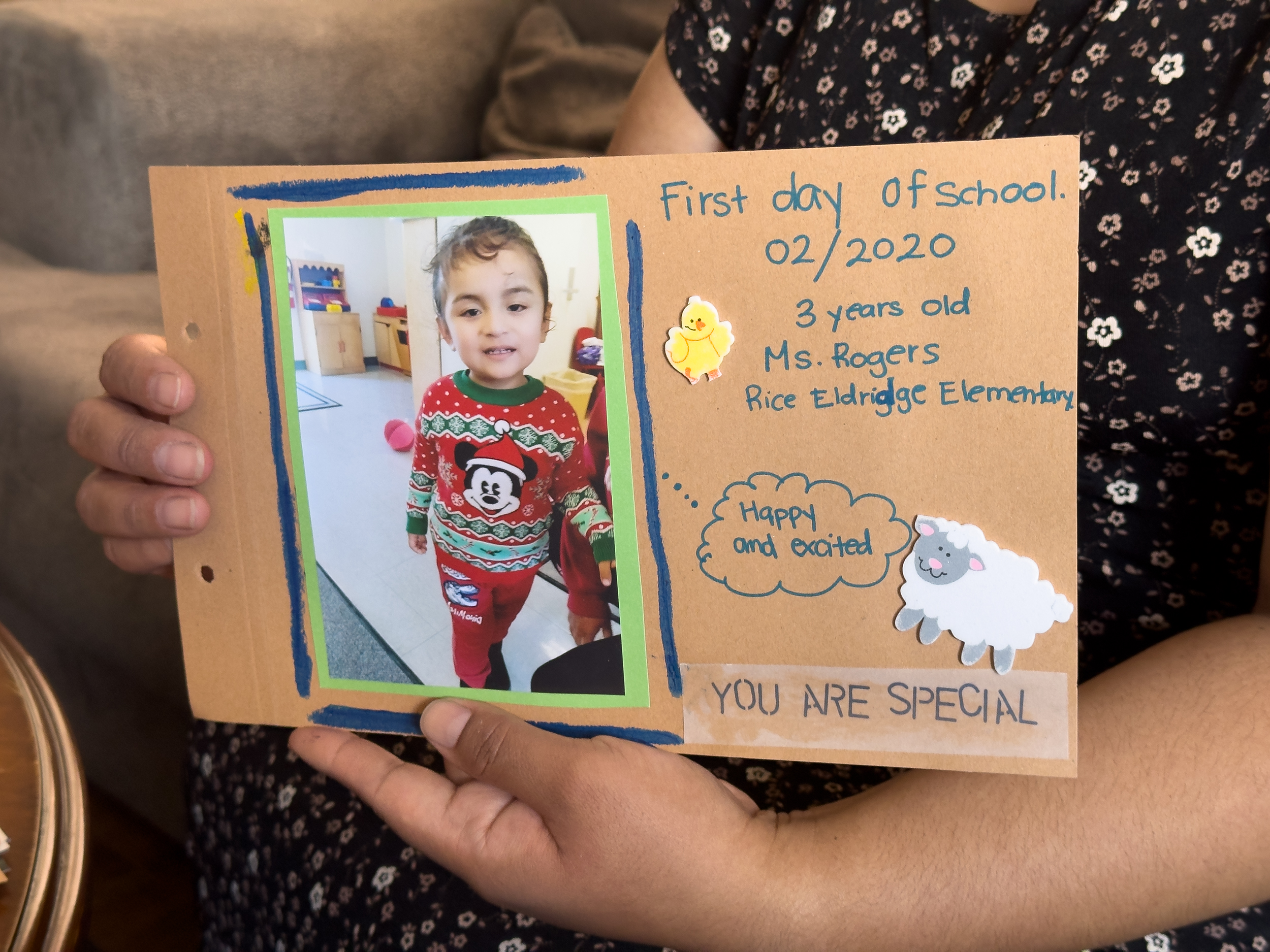
JILL SHIH / NEXTGENRADIO
“Every time someone comes in and out now I am very aware. It’s like I memorize the door sound inside my head,” she said. “I have to know who’s in and who’s out.”
Del Rio said despite the challenges of raising an autistic child, Lionel has changed her for the better. She said her experience has taught her how to be an advocate for Lionel and children with disabilities, as well as have more empathy for other caregivers. She wants to raise awareness of the struggles similar children and their families face daily.
“If you’re walking down the street, or in a store, anywhere you go and you see a child running away from their mom screaming, kicking, moving funny or flapping their hands — don’t just look and stare,” she said. “Wish them well in your heart.”
For Del Rio, home is a safe place. She has memories of watching television with her family, and her mother picked out the floral curtains that still adorn the windows. She said she wants her children to experience the same tranquility she had.
“When my children come home,” she said, “I want them to smell the home-cooked meals and think ‘this is home, and this is where I can feel safe.’”
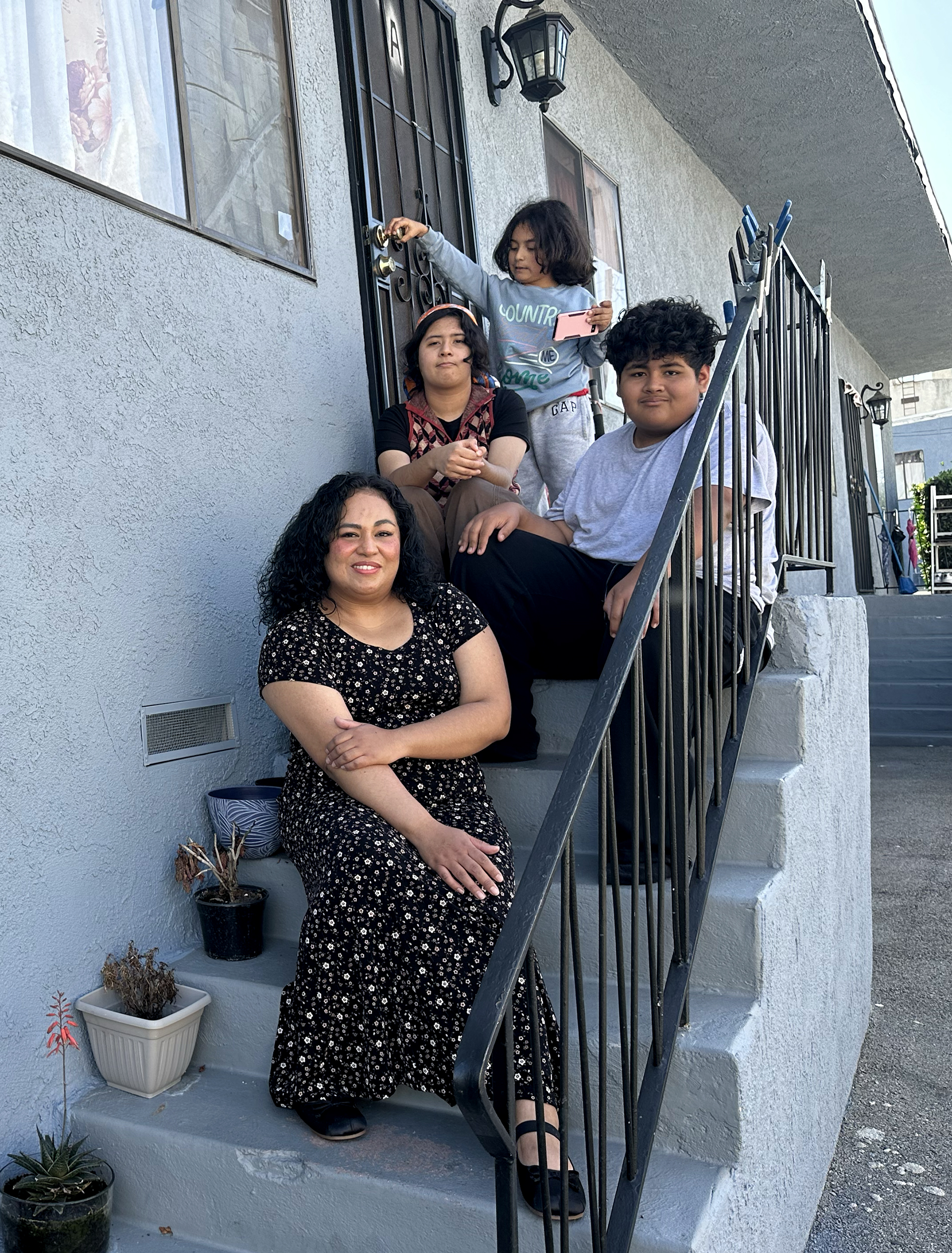
JILL SHIH / NEXTGENRADIO
